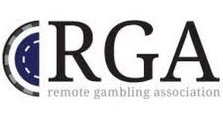
(Jamma) The main associations representing online betting operators in Europe are concerned by the European Commission's decision, which confirms that a process that benefits 'the equine sector and promotion of livestock farming complies with EU state aid rules.
According to the European Commission: 'State aid is prohibited by the Treaty establishing the European Community. However, some exceptions allow aid justified by public interest objectives, such as for services of general economic interest, as it does not distort competition to the extent that it is contrary to the general interest.'
In this context, the RGA and EGBA would like to make the following observations:
• Under the rules of the Treaty, state aid is in principle prohibited and exceptions can only be granted in limited and well-defined circumstances.
• It is important that the arguments put forward by the European Commission are transparent and legally sound when some taxes, as in this case, are considered justified under state aid rules.
•The decision of the European Commission just taken will be carefully analyzed by the online betting industry and other interested parties. The industry will try to obtain some information from the Commission, and the possibility of resorting to legal action is not excluded. The industry will also discuss previous Commission decisions and the case law applicable to the matter in order to know whether horse breeding can actually be classified as an SGEI.
• In general, taxes or any part of these taxes cannot be justified only if they serve the objectives of common interest. This may be the case, for example, for veterinary research or treatment.
• A clear distinction must be made, however, between this type of tax and other types of taxes which are used to transfer money from one sector to another for commercial or quasi-commercial purposes. This would lead to a distortion of competition between sectors and Member States, and would therefore run counter to EU State aid rules and therefore legal action will be launched.
• In this context, it should be noted that France proposed the introduction of this tax in 2010, as it feared that the horse-racing sector would be subject to a significant decline in revenues after the opening of the online horse-racing betting market. Indeed, this fear is not justified as evidenced by recent published data which confirm that the amount of online horse racing bets increased by 9%, from €1.034 million in 2011 to €1.124 million in 2012 and the amount of online bets with Paris Mutuel Urbain (PMU) amounted to €972.100.000 in 2012, up 11,1% on 2011, with an 86% online market share. The PMU currently still has a monopoly on the physical network and competition in the online market is very limited as online horse racing betting was licensed in 2010 and carries significant liquidity to be competitive and is in fact a barrier to market entry.











